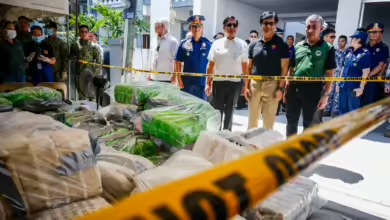According to the World Bank, poverty in Pakistan has increased by 12.5 million, reaching 39.4%
According to the World Bank, 12.5 million additional people fell into poverty in Pakistan over the previous fiscal year, pushing the country’s poverty rate to 39.4%. The World Bank encouraged Pakistan, which is struggling with its finances, to take immediate action to achieve financial stability. In advance of the next election cycle, the Washington-based lender presented draft policy notes for Pakistan’s incoming administration on Friday, according to the newspaper.
According to the World Bank, poverty in Pakistan increased from 34.2 percent to 39.4 percent in a year, with 12.5 million additional people living below the poverty line of US$3.65 per day. It claimed that 95 million Pakistanis are presently living in poverty. Tobias Haque, the head country economist for Pakistan at the World Bank, said that Pakistan’s economic model is no longer eliminating poverty and that living standards have slipped behind those of comparable nations.
In order to attain economic stability via a sharp budgetary adjustment of more than 7% of the GDP, the international lender asked Pakistan to act quickly to tax its “sacred cows” agriculture and real estate and reduce wasteful spending. The World Bank recognized poor human development, an unsustainable fiscal position, an overly regulated private sector, the agricultural and energy sectors as the main areas for changes for the next administration, pointing out that the rise in poverty was commensurate with the reality of the situation.
It advocated actions to put the unsustainable economy back on a responsible fiscal course, including an immediate 5 percent rise in the tax-to-GDP ratio and a roughly 2.7 percent reduction in spending. The lender’s paper on boosting government income indicated a number of initiatives to raise the revenue-to-GDP ratio by 5% by eliminating tax breaks and raising taxes on the real estate and agricultural industries.
According to Haque, the current state of the economy is causing the World Bank great anxiety. He continued by saying that big policy changes are now necessary in Pakistan due to the country’s critical economic and human development issues. According to Najy Benhassine, the World Bank’s country director for Pakistan, now might be the time for Pakistan to make a substantial adjustment in its foreign policy.
According to a World Bank statement, Pakistan has the ability to collect taxes equivalent to 22 percent of GDP, but its present ratio is just 10.2 percent, suggesting a deficit of more than half. The lender suggested removing unfair exemptions to raise taxes that would be equivalent to 2% of GDP. In order to raise another 2% of GDP in tax income and produce an additional 1% of GDP from the agricultural sector, it sought to raise the tax on land and property.
The World Bank suggested making the CNIC (Computerized National Identity Card) required for all transactions, especially those involving assets. In order to save around 1% of the GDP equivalent expenditures, it also suggested cutting energy and commodities subsidies, establishing a single treasury account, and enacting interim austerity measures. According to the World Bank, the government had almost Rs 2 trillion in deposits in commercial banks in 2022. However, because of its sovereign borrowings and the inability to spend this funds, Rs 424 billion in interest was paid.
In order to save around Rs 1.4 trillion over the medium term, it was suggested that federal development and current spending on provincial nature projects be cut, as well as spending on organizations that are operating at a loss. These short- to medium-term savings add up to 2.7 percent of the GDP overall.
According to the international lender, Pakistan’s agricultural industry receives heavy subsidies, which results in poor production, and the government may cut expenditure by Rs 328 billion by closing down ministries that come within the purview of the provinces. Delegating the Higher Education Commission to the provinces would save an additional Rs 70 billion, while cost-sharing for the Benazir Income Support Program (BISP) with the provinces would save an additional Rs 217 billion.
This is happening at a time when the country’s inflation rate, which had risen to 27.4% in July after the cash-strapped nation received USD 1.2 billion from the Washington-based International Monetary Fund in July as part of a USD 3 billion bailout program for nine months to support the government’s efforts to stabilize the nation’s failing economy, has now risen to 27.4%. For many years, Pakistan’s economy has been in free-fall, putting enormous pressure on the country’s destitute people in the form of unbridled inflation.







